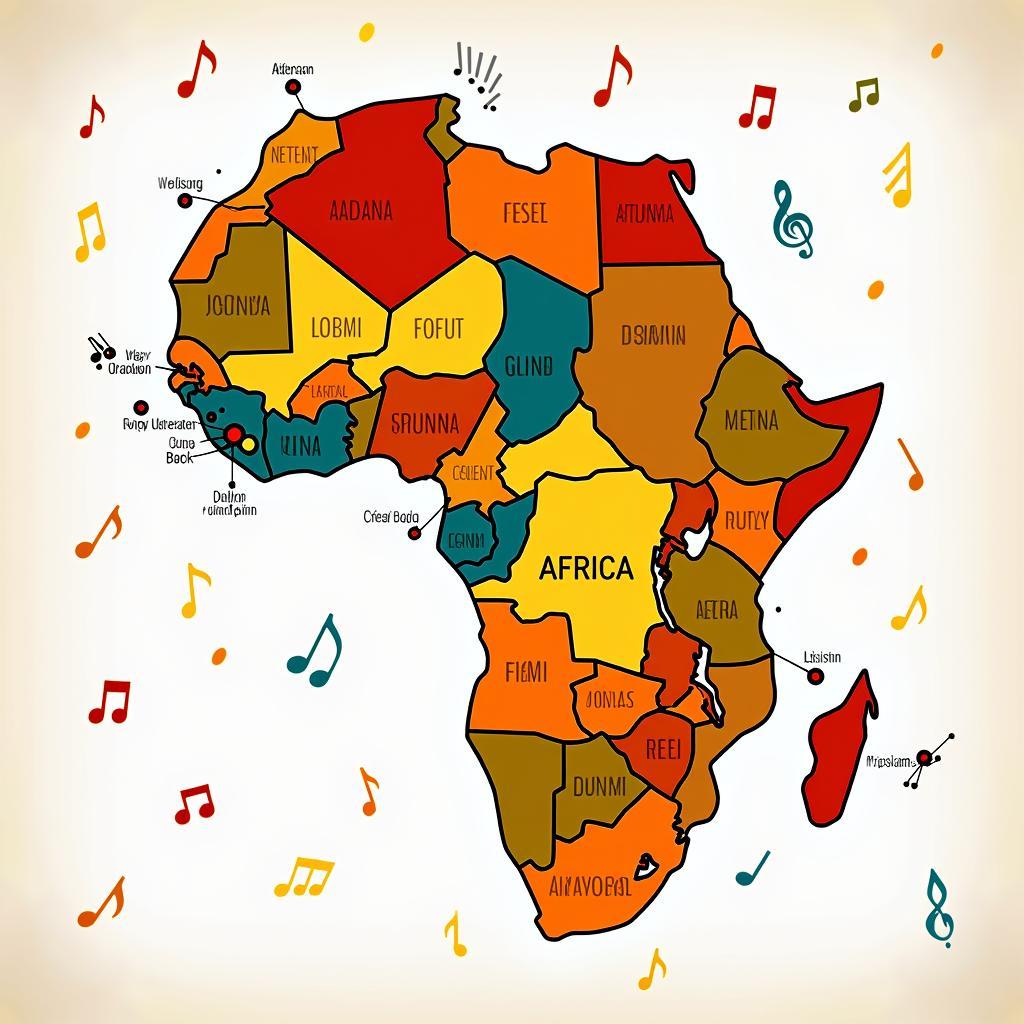Exploring the Diverse World of African Beans
African Beans represent a cornerstone of numerous cuisines across the continent. From hearty stews to vibrant salads, these versatile legumes offer a rich tapestry of flavors, textures, and nutritional benefits. This exploration delves into the fascinating world of African beans, uncovering their culinary significance, cultural importance, and the diverse varieties that grace tables from Cairo to Cape Town.
Beyond their culinary applications, African beans play a vital role in the social and economic fabric of many communities. They are a readily available and affordable source of protein and essential nutrients, contributing significantly to food security, particularly in rural areas. Moreover, the cultivation and trade of these beans empower local farmers and contribute to economic growth. Check out some easy african food recipes easy that highlight the versatility of these beans.
A Culinary Journey Through African Bean Varieties
The diversity of African beans is truly remarkable. Each region boasts unique varieties, each with its own distinct characteristics and culinary uses. Let’s embark on a culinary journey to discover some of the most prominent African bean varieties.
- Black-eyed peas: A staple in West African cuisine, black-eyed peas are known for their creamy texture and mild, earthy flavor. They are often used in stews, salads, and fritters.
- Honey beans: These beans, also known as Otili, are prized for their sweet flavor and smooth texture. They are a popular ingredient in Nigerian cuisine. Want to know more? Explore african honey beans.
- Kidney beans: While originating in South America, kidney beans have become a common ingredient in various African dishes, particularly in stews and curries.
- Bambara beans: These nutritious beans are a significant food source in many parts of Africa. They are often roasted or ground into flour and used to make porridge.
The Nutritional Powerhouse: Health Benefits of African Beans
African beans are not only delicious but also packed with essential nutrients. They are a fantastic source of protein, fiber, iron, and various vitamins and minerals. Incorporating these legumes into your diet can offer a range of health benefits.
- Improved digestion: The high fiber content in African beans promotes healthy digestion and can help prevent constipation.
- Blood sugar control: Beans have a low glycemic index, meaning they release sugar slowly into the bloodstream, helping to regulate blood sugar levels.
- Heart health: The soluble fiber in beans can help lower cholesterol levels, reducing the risk of heart disease.
- Weight management: The combination of protein and fiber in beans can promote feelings of fullness, aiding in weight management.
African Beans in Traditional Dishes and Cultural Practices
African beans are more than just a food source; they hold cultural significance in many communities. They are often incorporated into traditional dishes and ceremonies, symbolizing prosperity and abundance.
For example, in some cultures, african jumping beans are used in traditional games and rituals. In others, specific bean dishes are prepared for special occasions like weddings and festivals.
“Beans are truly a gift from the earth,” shares Dr. Anika Mwangi, a renowned Kenyan nutritionist. “They are a sustainable and nutritious food source that has nourished generations of Africans.”
Cooking with African Beans: Tips and Tricks
Preparing African beans can be a rewarding culinary experience. Here are a few tips to help you get the most out of these versatile legumes:
- Soaking: Soaking beans overnight can help reduce cooking time and improve their digestibility.
- Seasoning: African cuisine is known for its bold flavors. Don’t be afraid to experiment with different spices and herbs to create your own unique bean dishes. You might even explore african american green beans recipe for a different flavor profile.
- Cooking methods: African beans can be boiled, stewed, fried, or even roasted. Choose a cooking method that suits your recipe and preferences.
“Remember the african heritage diet pyramid,” adds Dr. Mwangi, emphasizing the importance of a balanced diet. “Beans are a valuable component of a healthy lifestyle.”
In conclusion, African beans are a culinary and cultural treasure. From their diverse varieties and nutritional benefits to their role in traditional dishes and economic importance, these versatile legumes offer a fascinating glimpse into the rich tapestry of African Life. So next time you’re looking for a healthy and delicious ingredient, reach for a bag of African beans and embark on your own culinary adventure.
FAQ
- What are the most common types of beans in Africa?
- How are African beans typically prepared?
- What are the health benefits of eating African beans?
- Where can I buy African beans?
- Are African beans gluten-free?
- How do I store African beans?
- Can I grow African beans in my own garden?
Common Scenarios
- Scenario 1: You want to incorporate more plant-based protein into your diet. African beans are an excellent option.
- Scenario 2: You are looking for a budget-friendly and nutritious meal. African beans are both affordable and packed with nutrients.
- Scenario 3: You are interested in exploring new cuisines and flavors. African bean dishes offer a wide range of tastes and textures.
Further Exploration
For more information on African cuisine and culture, explore other articles on our website related to African spices, traditional dishes, and agricultural practices.
Contact Us
When you need assistance please contact Phone Number: +255768904061, Email: kaka.mag@gmail.com Or visit us at: Mbarali DC Mawindi, Kangaga, Tanzania. We have a 24/7 customer service team.


